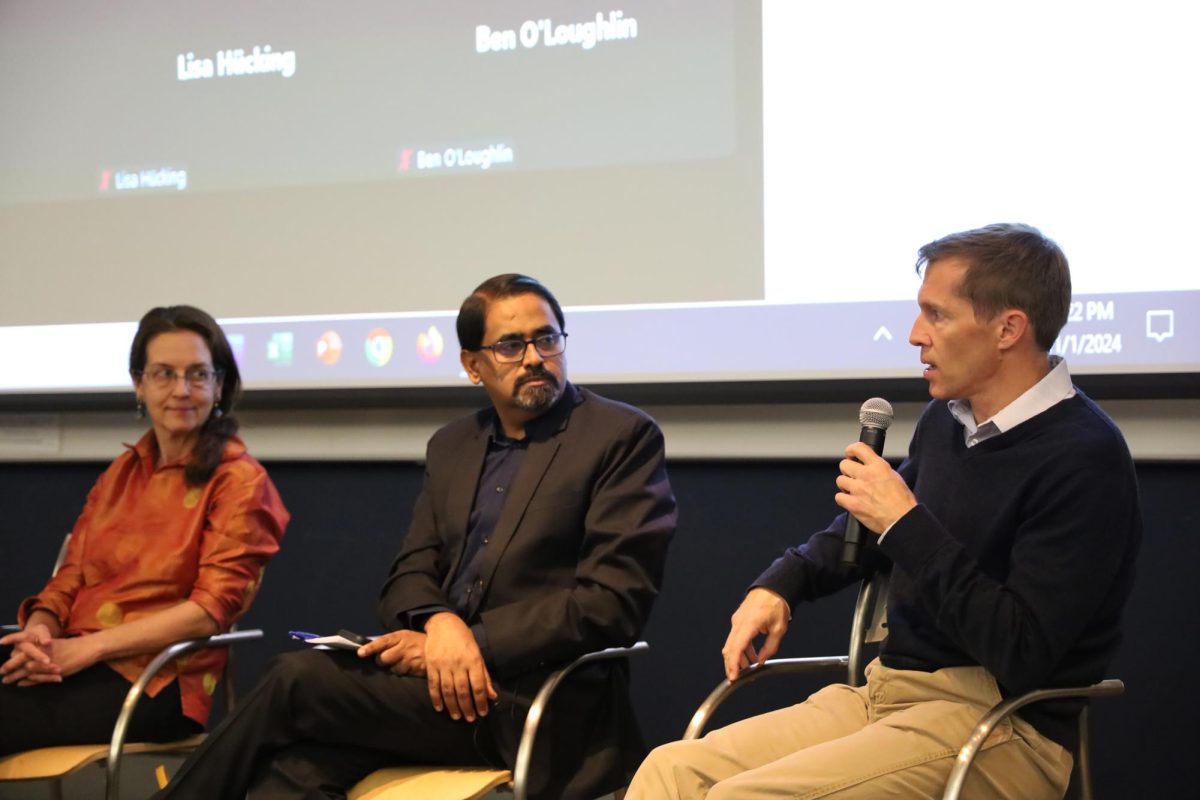Three experts on international political discourse discussed strategies for preventing election violence at the Elliott School of International Affairs on Friday.
Susan Benesch, a journalist and communication researcher, Vasu Mohan, an expert in conflict advising, and Theo Dolan, an activism advisor at the U.S. Agency for International Development, discussed the growing risk of political violence in western democracies and highlighted lessons they said the U.S. can learn from regions affected by election violence. The event was moderated by Babak Bahador, the director of GW’s Media and Peacebuilding Project — which studies how communication affects security and peace — and was hosted by GW’s Institute for Public Diplomacy and Global Communication.
Benesch said after the 2007 elections in Kenya, a devastating surge of violence resulted in over 1,000 deaths and the displacement of half a million people. She said the wave of violence was caused by candidates deliberately and strategically pitting their supporters from various ethnic groups against one another.
She said leading into the Kenyan national and parliamentary elections in 2012, concerns in the country remained high for the possibility of violence in future elections. Benesch described this manipulation tactic as a prolonged campaign of “dangerous speech.”
“Dangerous speech is rhetoric that has the capacity to lower normal social barriers against violence and inspire intergroup violence by getting one group of people to perceive another as a threat,” Benesch said.
Bahadur said it is “interesting” how seriously Americans often take politicians’ words as they are often performing and may not even think of the rhetoric they are using as a campaign tactic.
Mohan said while international political processes and U.S. elections may appear different, there is considerable overlap, especially in addressing shared challenges. He said the U.S. could learn from other countries’ experiences, like Indonesia’s, in tackling election-related violence, divisive rhetoric and incitement in their communities.
Mohan spoke about his work in Indonesia during the gubernatorial elections in 2018 in West Kalimantan, a province of Indonesia on the island of Borneo, where he worked as a conflict advisor for the International Foundation for Electoral Systems. He said candidates from the majority Muslim Malay ethnic group and predominantly Christian or tribal Dayak community competed in the election, with tensions already high among communities divided along ethnic lines.
Mohan said much of the hateful rhetoric came from supporters rather than the candidates themselves. He said election authorities worked to address potential election violence, including the training of religious leaders to use their platforms to de-escalate tensions without taking sides.
Mohan also said Mafindo, which he described as a hoax-countering organization, developed a fact-checking tool prior to the elections that was instrumental in addressing hoaxes and disinformation. Mohan said a comprehensive, “whole-of-society” approach is crucial, as no single intervention would have achieved the same level of success.
“We look at election violence as sort of top-down responses,” he said. “But I feel like when you have a combination of these factors, I think we’re likely to see less violence.”
The panel spoke about the deliberate spread of disinformation and the urgent need for comprehensive media literacy that not only identifies content generated by artificial intelligence and misinformation but also encompasses ethics, social cohesion and conflict resolution training to recognize how certain content can incite harmful actions.
Mohan said it is important to incorporate a diverse range of voices in discussions about peace initiatives in order to effectively address both violence and political violence.
“But also what is true is that youth-led initiatives of peace building are extremely effective,” Mohan said.











